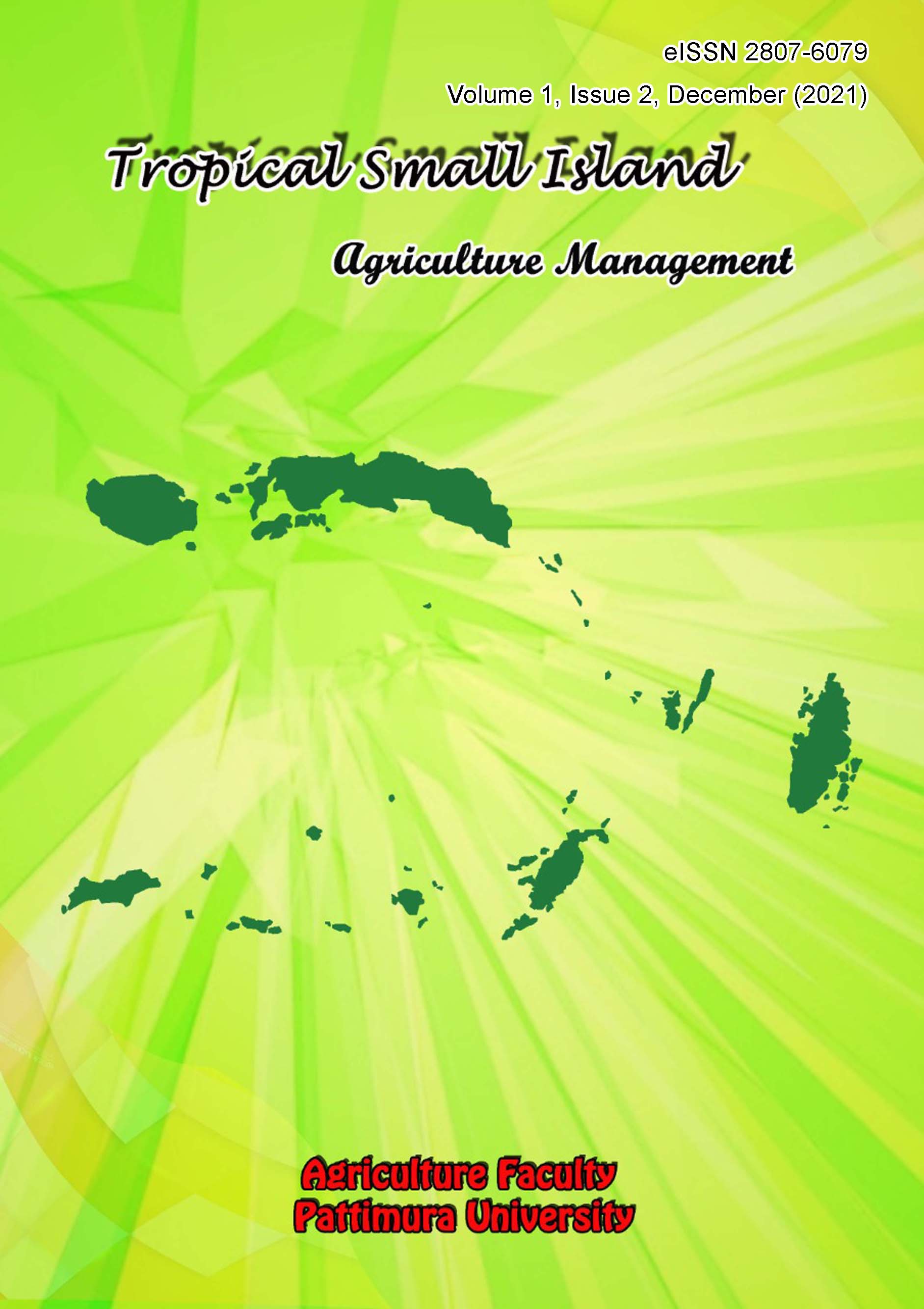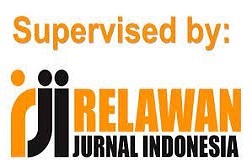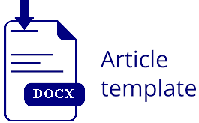Modal Sosial Dalam Pengelolaan Hutan Adat Negeri Hutumuri Kecamatan Leitimur Selatan Kota Ambon
Social Capital in the Management of Hutumuri State Customary Forests, South Leitimur District, Ambon City
Abstract
The purpose of this research is to find out the forms of social capital and the role of indigenous peoples in customary forest management. To analyze the elements of social capital in customary forest management in Hutumuri Country. The method used in this research is a descriptive method with a qualitative and quantitative approach. The results of the study show that the Hutumuri community believes in existing rules (written and unwritten rules) that the Hutumuri community builds and maintains social relations in one country on the basis of kinship and neighborly social relations that also take place between members of the Hutumuri community and members of neighboring communities Social capital! in the Hutumuri community, it is measured by its elements, Belief in the network. Social norms of solidarity are quite strong, the level of trust among members of the Hutumuri community is high. They trust each other among their members.
Downloads
References
Asep, Y. F. (2018). Panduan Praktis Penerapan Kebijakan Perhutanan Sosial. Bogor, Indonesia: CIFOR.
CIFOR. (2002). Hutan Adat. Bogor, Indonesia: Warta Kebijakan.
CIFOR. (2012). Warta Kebijakan. Bogor, Indonesia.
Ekawati, S., & Nurrochmat, D. R. (2014). Hubungan modal sosial dengan pemanfaatan dan kelestarian hutan lindung. Jurnal Analisis Kebijakan Kehutanan, 11(1), 40 - 53.
Hanifan, L.J. (1916). The rural school community center. The Annals of the American Academy of Political and Social Science, 67(1), 130-138
Hakim, I. (2010). Social Forestry Menuju Restorasi Pembangunan Kehutanan Berkelanjutan. Pusat Penelitian Dan Pengembangan Perubahan Iklim dan Kebijakan. Bogor, Indonesia.
Harahap, Mailina, & Surna. H. (2018). Produktivitas petani sayur (Studi kasus pada kelompok tani Barokah Kelurahan Tanah Enam Ratus). Jurnal Agrium, 21(2), 157-165.
Hasbullah, J. (2006). Social Capital (Menuju Keunggulan Budaya Manusia). Jakarta, Indonesia: MR-United Pres.
Nurami, M. (2012). Peran modal sosial pada pemberdayaan ekonomi masyarakat studi pada usaha daur ulang di kota Kedungwonokerto, Kecamatan Prambon, Sidoarjo. Jurnal Ilmiah Mahasiswa FEB Universitas Brawijaya, 1(2).
Sagita, M. N., Akhbar, A., & Muis, H. (2019). Partisipasi petani dalam pengelolaan hutan kemasyarakatan di Desa Labuan Toposo Kecamatan Labuan Kabupaten Donggala. Jurnal Warta Rimba, 7(2), 1-10.
Sanjaya, R. (2016). Evaluasi pengelolaan hutan kemasyarakatan (HKm) pada gabungan kelompok tani rukun lestari sejahtera di Desa Sindang Pagar Kecamatan Sumberjaya Kabupaten Lampung Barat. Jurnal Sylva Lestari, 5(2), 30-42.
Suharjito, D. & Darusman, D. (1998). Masyarakat; Beragam Pola Partisipasi Masyarakat Dalam Pengelolaan Hutan. Diterbitkan Atas Kerjasama IPB dan The Ford Foundation, Bogor.
The British Council. (2001). Teknik Mewujudkan Partisipasi Masyrakat London. British Council.
Tjoa, M. (2017). Sistem Penguasan Lahan Hutan Pada Masyarakat Adat Di Kabupaten Seram Bagian Barat, Maluku. Disertasi. IPB, Bogor.
Winata, N. G. A. W., Basuki, P., & Karismawan, P. (2015). Analisis determinan pendapatan petani program hutan kemasyarakatan (HKm) di Kecamatan Batukliang Utara Kabupaten Lombok Tengah. Jurnal Sosial Ekonomi dan Humaniora, 1(1), 33-42.
Zeilika, E. (2020). Partisipasi petani dalam pengelolaan hutan kemasyarakatan studi kasus Gapoktan Mandiri Lestari di kesatuan pengelolaan hutan Batutegi.
Copyright (c) 2024 The Author(s)

This work is licensed under a Creative Commons Attribution-ShareAlike 4.0 International License.
Authors who publish with this journal agree to the following terms:
- Authors retain copyright and grant the journal right of first publication with the work simultaneously licensed under a Creative Commons Attribution License that allows others to share the work with an acknowledgment of the work's authorship and initial publication in this journal.
- Authors are able to enter into separate, additional contractual arrangements for the non-exclusive distribution of the journal's published version of the work (e.g., post it to an institutional repository or publish it in a book), with an acknowledgment of its initial publication in this journal.
- Authors are permitted and encouraged to post their work online (e.g., in institutional repositories or on their website) prior to and during the submission process, as it can lead to productive exchanges, as well as earlier and greater citation of published work (See The Effect of Open Access).










